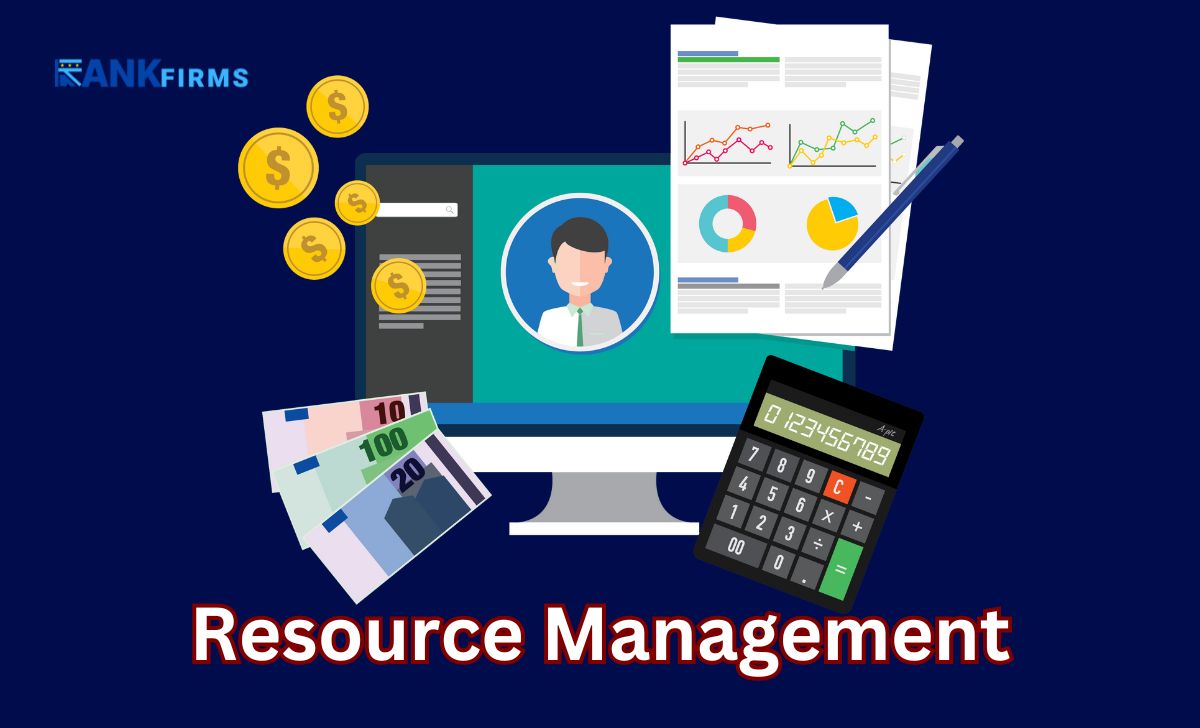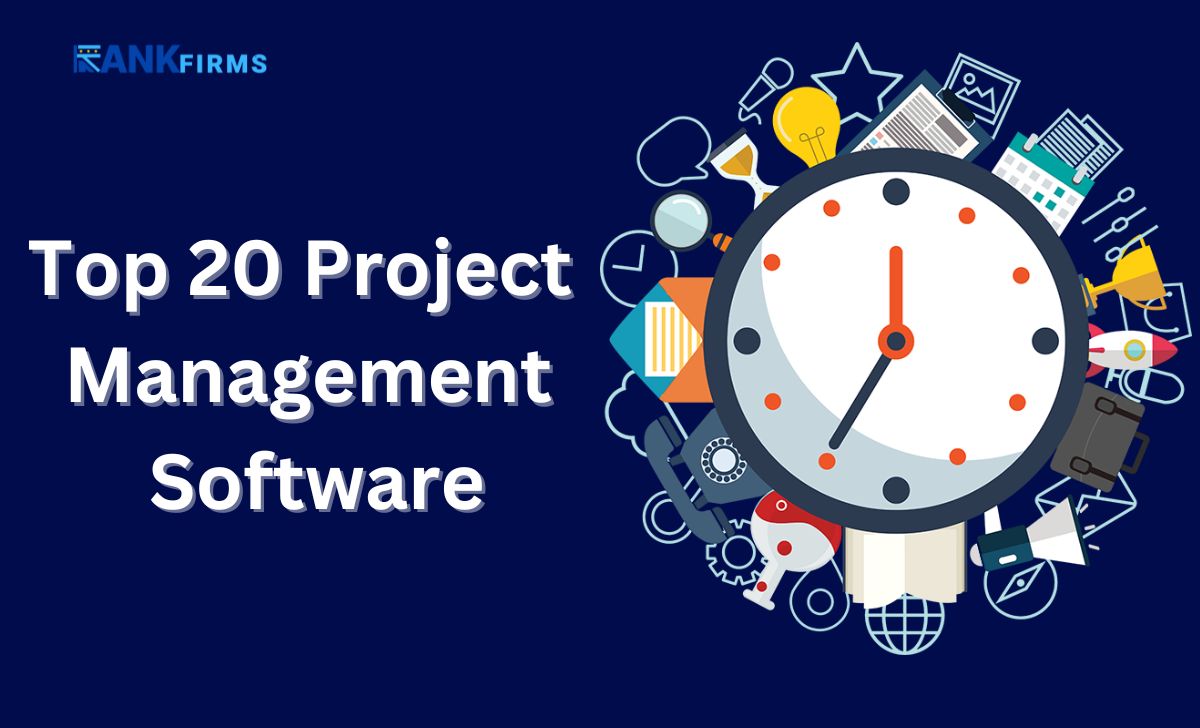Today most software development companies juggle a lot to accomplish multiple tasks for continuous growth and favorable outcomes. Bringing new products to life, launching a marketing campaign, coordinating people, redesigning your website, & many more tasks need to be done simultaneously. Managing all that faultlessly is certainly tedious as well as time-consuming.
But with so many moving parts, keeping everything organised and on track can be a challenge. That’s where project management software comes in. These digital tools streamline the process, boosting collaboration, ensuring clear communication, and keeping projects on schedule – all contributing to a smoother and more successful journey for your business.
Powerful Project Management Software: Features and Benefits

Project management software (PMS) is a digital command centre that can streamline the complex process of bringing projects to fruition. PMS offers a suite of features to empower teams and boost project success. Here’s a breakdown of its key functionalities and the benefits they bring:
Features:
Project Planning & Scheduling:
Imagine a roadmap for your project:
Define the scope of what you want to achieve. Make them into smaller, more manageable tasks using a Work Breakdown Structure (WBS). Think of a WBS like a branching tree, where the main project goal is the trunk and each branch represents a smaller, more defined task.
Visualise your timeline:
Utilize features like Gantt charts to visually represent the project schedule, including task durations, dependencies (when one task needs to be completed before another can start), and deadlines. Integrating Kanban boards can offer another visual approach. It can help understand the progress rate through tasks listed on cards that move across different stages (e.g., To Do, In Progress, Done).
Resource Allocation:
Assigning the right people with the necessary skills and equipment to each task. This ensures everyone knows their responsibilities and has the tools to progress with everyday tasks effectively.
Task Management & Collaboration:
Assign with ease:
Assign specific tasks to team members, set clear due dates, and track real-time progress. PMS also eliminates confusion about who is responsible for what and keeps everyone accountable.
Communication Hub:
PMS facilitate seamless communication with features like built-in chat, document-sharing capabilities, and task discussions. Team members can easily share ideas, updates, and feedback within the platform, fostering a collaborative environment.
Transparency and Shared Knowledge:
A centralised platform ensures everyone can access the latest information and project updates. PMS offers transparency that reduces the risk of miscommunication and keeps everyone on the same page.
Resource Management:

See the bigger picture:
Visualize how your team’s time and expertise are allocated across different projects. This helps avoid overloading individuals and ensures efficient utilisation of resources.
Time Tracking:
Track the time employees spend on specific tasks on PMS. This data can be used for better project costing, workload management, and identifying areas for improvement.
Communication & Reporting:
Centralised Communication:
Move away from email overload! Project management software can provide IT services companies with a central platform for all project communication. Discussions, updates, file sharing, etc that a company needs can be done through this software.
Data-Driven Insights:
PMS allows you to generate reports that provide valuable insights into project health, resource utilisation, and potential roadblocks. You can also analyse project performance metrics to identify areas for improvement and make data-driven decisions.
Keeping Stakeholders Informed:
With customised reports and dashboards, you can inform and update stakeholders on project progress whenever they demand. This transparency builds trust and ensures everyone is aligned with project goals.
Document Management:
Say goodbye to document chaos:
Store and organise all project-related documents, such as proposals, contracts, and meeting notes, in a central, easily accessible location. No more wasting time finding the latest version or even the first document prepared for the project!
Version Control:
Version control features ensure everyone works on the latest version of documents. This eliminates confusion and wasted effort due to outdated information.
Integration & Automation:
Seamless Workflow:
Integrate project management software with other business tools you already use, like email, calendars, and file-sharing platforms. This creates a seamless workflow and eliminates switching between different applications.
Automate Repetitive Tasks:
Free up valuable time by automating repetitive tasks such as sending task reminders or generating reports. This allows your team to focus on more strategic work.
By understanding these features in more detail, you can see how project management software empowers teams to work more efficiently, collaborate effectively, and ultimately achieve project success.
Also Read: The Best Software Development Frameworks of 2024
Top 20 Project Management Software

Project management software has multiple types fulfilling the different needs of the companies. Here’s a breakdown of the common types:
1. General Project Management (All Sizes):
Focus:
Comprehensive solution for various project aspects like task management, scheduling, communication, resource allocation, and reporting.
Examples:
Monday.com, Asana, ClickUp, Wrike
Ideal for:
Businesses of all sizes looking for a centralised platform to manage projects from start to finish.
2. Agile Project Management (All Sizes):
Focus:
Supports agile methodologies like Scrum and Kanban, emphasising flexibility, iteration, and continuous improvement.
Examples:
Jira, Trello (Kanban-focused), Azure Boards
Ideal for:
Teams working on complex, fast-paced projects that require adaptability. Popular in software development.
3. Lean Project Management (All Sizes):
Focus:
Optimizes resource utilisation and eliminates waste through techniques like Kanban boards and value stream mapping.
Examples:
Trello (can be adapted for Lean), LeanKit, Kanbanize
Ideal for:
Businesses aiming to improve efficiency and eliminate unnecessary steps in project workflows.
4. Work Collaboration & Communication (All Sizes):
Focus:
Prioritizes team communication and collaboration through features like chat, video conferencing, task management, and file sharing.
Examples:
Slack, Microsoft Teams, Google Workspace
Ideal for:
Teams working remotely or needing a central communication hub to keep everyone connected.
5. Creative Project Management (All Sizes):
Focus:
Offers features like mood boards, design proofing tools, and integrations with creative applications like Adobe Creative Suite.
Examples:
Wrike, Adobe Workfront, InVision
Ideal for:
Creative teams working on design, marketing, or advertising projects.
6. Construction Project Management (Construction Industry):
Focus:
Specializes in construction project needs, including bid management, scheduling, resource allocation for materials and equipment, and document management for blueprints and permits.
Examples:
Procore, Buildertrend, CoConstruct
Ideal for:
Construction companies, architects, and engineering firms managing construction projects.
7. Marketing Project Management (Marketing Teams):
Focus:
Integrates with marketing automation tools and offers features for campaign planning, budget management, social media scheduling, and content creation workflows.
Examples:
Maroproject, Asana (with integrations), monday.com (with integrations)
Ideal for:
Marketing teams managing campaigns, social media content, and other marketing initiatives.
Also Read: Unlocking Advantages of Engaging a Java Development Company
8. Event Management Software (Event Planners):
Focus:
Streamlines event planning with features like guest management, registration, ticketing, budget tracking, and vendor communication.
Examples:
Eventbrite, Cvent, Aventri
Ideal for:
Event planners and organisers managing conferences, trade shows, or other events.
9. Product Development Management (Product Teams):
Focus:
Provides tools for product roadmaps, backlog management, user story creation, and integration with development tools for bug tracking and version control.
Examples:
Jira, Asana, monday.com (with integrations)
Ideal for:
Product teams managing lifecycle development of new products or software.
10. Resource Management Software (All Sizes):
Focus:
Optimizes resource allocation by providing insights into team workload, availability, and skillsets, ensuring efficient utilisation of human resources.
Examples:
Float, Teamleader, Resource Guru
Ideal for:
Businesses with multiple projects and teams, needing a way to manage and track employee workload effectively.
11. Project Portfolio Management (Large Enterprises):
Focus:
Provides a high-level view of the project portfolio, prioritising projects based on strategic alignment and resource availability.
Examples:
Planview PPM, Microsoft Project Server, Oracle Primavera
Ideal for:
Large enterprises managing a complex portfolio of projects and needing strategic decision-making tools.
12. Human Resource Management Software (HR Teams):
Focus:
Automates HR processes like payroll, benefits administration, recruitment, and performance management.
Examples:
Workday, ADP Workforce Now, BambooHR
Ideal for:
HR departments and organisations needing to streamline HR processes and improve employee experience.
13. Learning Management System (Training & Development):
Focus:
Offers tools for creating, delivering, and managing online learning courses for employee training and development.
Examples:
Cornerstone OnDemand, Udemy Business, LinkedIn Learning
Ideal for:
Businesses investing in employee training and development programs
14. Freelance & Client Management (Freelancers & Agencies):
Focus:
Streamlines project management for freelancers and agencies, offering features like proposal creation, time tracking, invoicing, and client communication.
Examples:
Dubsado, HoneyBook, Bonsai
Ideal for:
Freelancers, independent contractors, and small agencies managing client projects and communication.
15. Software Development Project Management (Software Development Teams):
Focus:
Provides advanced features specifically for software development, including version control (Git integration), bug tracking, agile methodologies, and code review tools.
Examples:
GitHub, GitLab, Bitbucket
Ideal for:
Software development teams managing codebases, version control, and agile development workflows.
Also Read: How to choose Right Software Development company?
16. Project Management for Nonprofits (Non-Profit Organizations):
Focus:
Caters to the needs of non-profit organisations, offering features like volunteer management, grant tracking, fundraising tools, and reporting for program impact measurement.
Examples:
NeonCRM, Wrike for Nonprofits, Asana (with integrations)
Ideal for:
Non-profit organisations managing projects, volunteers, grants, and program activities.
17. Project Management for Government Agencies (Government Agencies):
Focus:
Offers features specific to government needs, including secure communication, compliance, and integration with government regulations & databases.
Examples:
Acumatica Cloud ERP, Oracle Primavera Gov Cloud, Microsoft Project Server
Ideal for:
Government agencies managing complex projects with security and regulatory compliance requirements.
18. Project Management for Research & Development (R&D Teams):
Focus:
Provides tools for managing research projects, including experiment tracking, data analysis, collaboration with the R&D team, and intellectual property management.
Examples:
Labguru, OpenProject, Wrike (with integrations)
Ideal for:
R&D teams managing research projects, experiments, and collaboration among researchers.
19. Project Management for Professional Services (Professional Service Firms):
Focus:
Streamlines project management for professional services firms like consulting or law firms, offering features for time tracking, client billing, resource allocation, and project budgeting.
Examples:
Bill.com, TimeCamp, Xero Projects
Ideal for:
Professional service firms managing client projects, time tracking, and billing for services rendered.
20. Personal Project Management (Individuals & Small Teams):
Focus:
Offers simple and intuitive tools for individuals or small teams to manage personal projects, tasks, and goals.
Examples:
Todoist, Evernote, Trello (free plan)
Ideal for:
Individuals managing personal to-do lists, students organising projects, or small teams with basic project management needs.
In Conclusion
The project management software doesn’t offer one fit solution for all, rather it has a diverse range of options, each catering to specific needs and industries. From the all-encompassing features of general project management solutions to the specialised functionalities of construction or R&D software, there’s a perfect fit for every team.
Choosing the right software hinges on understanding your project’s nature, team size, and desired functionalities. Software or mobile app development companies should evaluate factors like budget, user-friendliness, scalability, and the level of collaboration needed. Don’t hesitate to explore free trials or demos to test-drive different options before decision-making.
By harnessing the power of project management software, you can transform your workflows, boost team collaboration, and ultimately achieve project success. Remember, the ideal software acts as a digital maestro, orchestrating the chaos and leading your team to a harmonious and productive project symphony.







